There is a fairy tale that tells of two quarreling gods who settle a dispute between them by making works of art out of haystacks. Jenju community
(
Jenju (which means "pearl") in Tungshan Township (
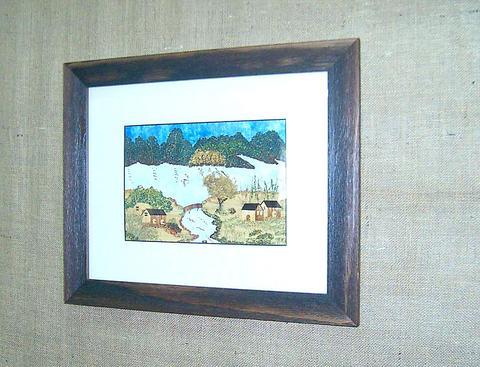
PHOTO COURTESY OF JENJU COMMUNITY DEVELOPMENT ASSOCIATION
The Jenju story begins in the mists of time with disputes arising from competition between two rival local temples, the Chinshing Divine Palace (
"My idea was fairly simple at the time," said Huang, who is in his 30s. "Since the adherents of these two temples used to boycott each other's religious activities, I figured that if I put their worshiping gods side by side, the followers would have to come together and participate in the same event."
This artistic display seemed to defuse the ancient antagonism overnight and now these two painted haystack gods have become landmarks for Jenju. The hay art festival is held from July to September every year and features such crafts as hay painting, hay-pulp masks, hay dolls, hay knitting and more.
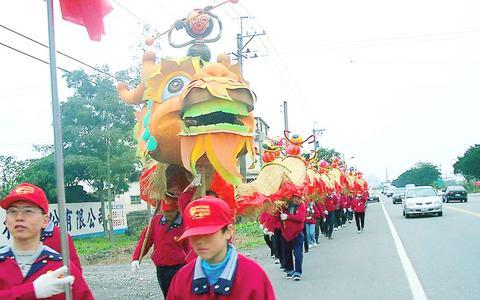
"You see, we specialize in hay art from the standpoint of seeking community harmony. Huang's bold move has given his fellow residents a great opportunity to explore something creative in art. This goes far beyond what any farmer could have imagined in the past," said Lee Hou-zine (
One example of how people have benefited practically is the pulp-mask business, where straw is ground into powder and made into masks with a machine. This small enterprise now brings in an income of NT$2 million a year through sales to tourists. Another popular craft is cutting the hay into small sections, which are dyed and then glued onto wood panels to create paintings.
The Jenju community was created in February 1994 in an area that was formally inhabited by one of the 36 Pingpu Kuvalan tribes (
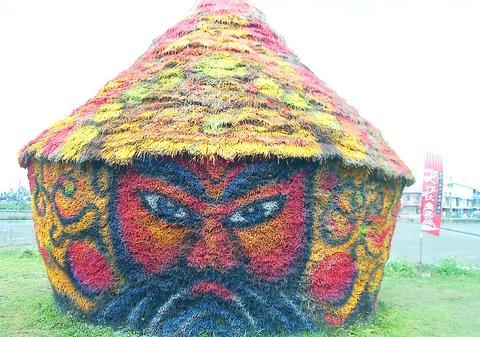
The 2.5km2 community relies primarily on rice and vegetable cultivation and is helped in this respect by the 24km-long Tungshan River which flows through it. A census accounted for 250 people in the area in 1810 and there are now 1,851, with a population increase of 10 percent in recent years, due perhaps to the community's success in providing jobs for its residents.
The river is used for many large-scale international water sport events and one of the most popular cultural activities in Taiwan, the International Children's Folklore and Folkgame Festival (
The Ilan County Government plans to launch a water bus project a few years from now by using solar-powered ferryboats to link Jenju Community, Chingshuei Park and other popular visitor points along the river. Its overarching aim is to set up a national waterfront recreation area to boost local tourism even further.
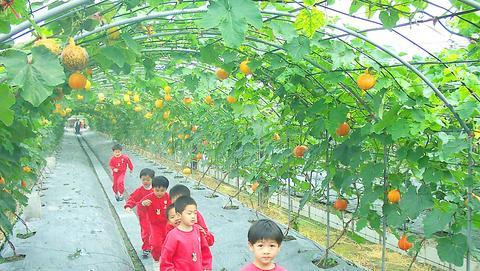
The Jenju community, however, is just one example of the many independent villages which have adapted to changes in the farming ecomomy. Other examples include Ilan's White Rice Community (
Under the 10-year-old Integrated Community Development Project (
If you do have the chance to visit Jenju, do not miss a pumpkin meal or baked pumpkin pie. Local resident Lee Chi-sen (
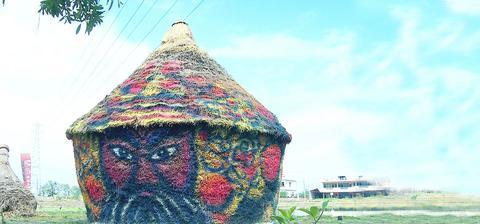
Lee, who is in his 60s, is an art-crazy farmer as well. He enjoys making carvings, in the shape of a Chinese dragon or other animals, on the skin of his pumpkins that hang from canopies of leaves in the garden.
There are many untold stories in the country's village communities and the story of one man bringing peace to a village through hay art is just one of them.
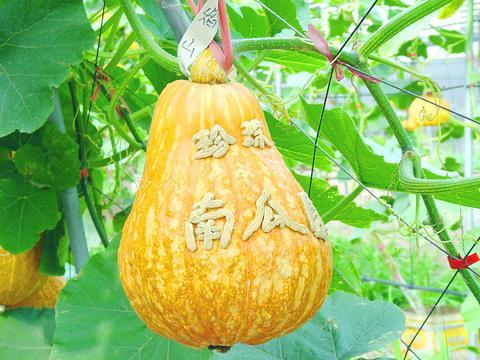
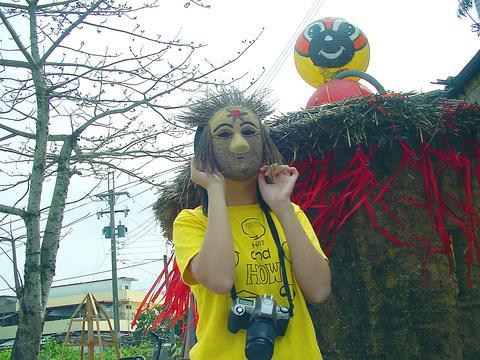
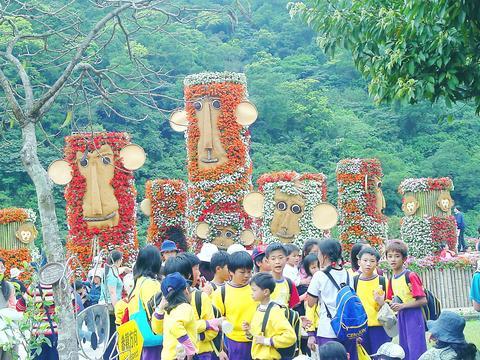
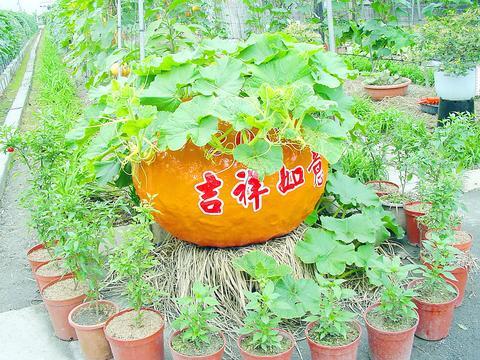

March 2 to March 8 Gunfire rang out along the shore of the frontline island of Lieyu (烈嶼) on a foggy afternoon on March 7, 1987. By the time it was over, about 20 unarmed Vietnamese refugees — men, women, elderly and children — were dead. They were hastily buried, followed by decades of silence. Months later, opposition politicians and journalists tried to uncover what had happened, but conflicting accounts only deepened the confusion. One version suggested that government troops had mistakenly killed their own operatives attempting to return home from Vietnam. The military maintained that the

Taiwan has next to no political engagement in Myanmar, either with the ruling military junta nor the dozens of armed groups who’ve in the last five years taken over around two-thirds of the nation’s territory in a sprawling, patchwork civil war. But early last month, the leader of one relatively minor Burmese revolutionary faction, General Nerdah Bomya, who is also an alleged war criminal, made a low key visit to Taipei, where he met with a member of President William Lai’s (賴清德) staff, a retired Taiwanese military official and several academics. “I feel like Taiwan is a good example of

Jacques Poissant’s suffering stopped the day he asked his daughter if it would be “cowardly to ask to be helped to die.” The retired Canadian insurance adviser was 93, and “was wasting away” after a long battle with prostate cancer. “He no longer had any zest for life,” Josee Poissant said. Last year her mother made the same choice at 96 when she realized she would not be getting out of hospital. She died surrounded by her children and their partners listening to the music she loved. “She was at peace. She sang until she went to sleep.” Josee Poissant remembers it as a beautiful

Before the last section of the round-the-island railway was electrified, one old blue train still chugged back and forth between Pingtung County’s Fangliao (枋寮) and Taitung (台東) stations once a day. It was so slow, was so hot (it had no air conditioning) and covered such a short distance, that the low fare still failed to attract many riders. This relic of the past was finally retired when the South Link Line was fully electrified on Dec. 23, 2020. A wave of nostalgia surrounded the termination of the Ordinary Train service, as these train carriages had been in use for decades